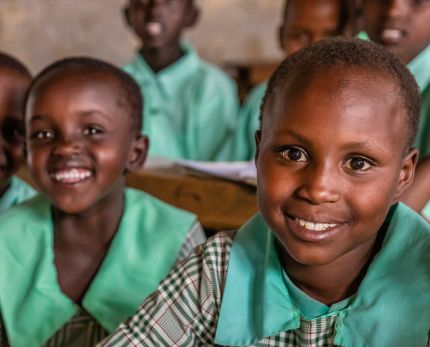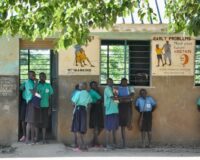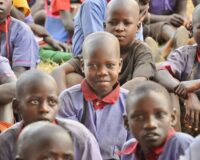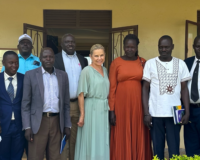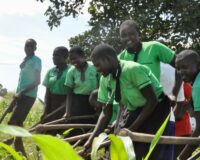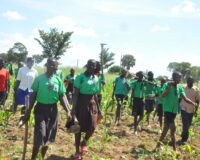In the heart of Uganda – Agago District – an extremely poor region but brimming with hope and potential, Future4Children is making remarkable strides with a series of innovative projects that are transforming lives and landscapes.
In the heart of Northern Uganda lies a region grappling with formidable challenges. This area endures the absence of fundamental amenities like electricity, sewage systems, and proper housing, all compounded by the weight of extreme poverty.
The context is dire, and amid these adversities, a critical issue has emerged within primary schools. In the past, parents would contribute modestly to ensure the provision of a simple but sustaining porridge for their children’s lunchtime at school.
However, the ravages of poverty have left these parents financially incapacitated, rendering them unable to make even these modest contributions. Consequently, the once-reliable source of nourishment has disappeared, leaving the school grounds bereft of lunchtime sustenance. This unfortunate turn of events has far-reaching consequences: many children arrive at school on empty stomachs, enduring hunger pangs throughout the day. This perpetual hunger disrupts their ability to concentrate, attend classes regularly, and, in the most distressing cases, compels them to drop out of school altogether. The implications for academic performance are stark, as the lack of nourishment and subsequent cognitive struggles have led to a profound decline in overall educational achievement.
To address this crisis, Future4Children has initiated a strategic method: a pilot project that targets primary 3 schools, each accommodating between 600 to 700 students. The aim is twofold: to elevate academic performance and attendance rates by infusing a nutrition-centred approach and integrating vital lessons in agriculture and animal husbandry. In practice, this involves cultivating maize as a staple food, introducing a diverse range of vegetables, and providing substantial support through “F4C contributions”: the distribution of essential resources such as seeds, plants, two cows, and a water tank for each school. These elements collectively construct a foundation for sustainable change. However, mere provision is insufficient; continuous training is indispensable. By imparting knowledge and techniques related to effective farming practices, these schools not only improve food security but also empower their students with practical skills that can shape their future.
This comprehensive approach is poised to rekindle hope and opportunity within these schools, fostering an environment where hunger no longer undermines education but rather becomes a catalyst for growth, resilience, and transformation. In the heart of adversity, we are sowing the seeds of a brighter future, where education is nourished both in body and mind and where the potential of each child can flourish. Together, we are cultivating a landscape where dreams take root, and the harvest is nothing short of a brighter, more promising tomorrow.

